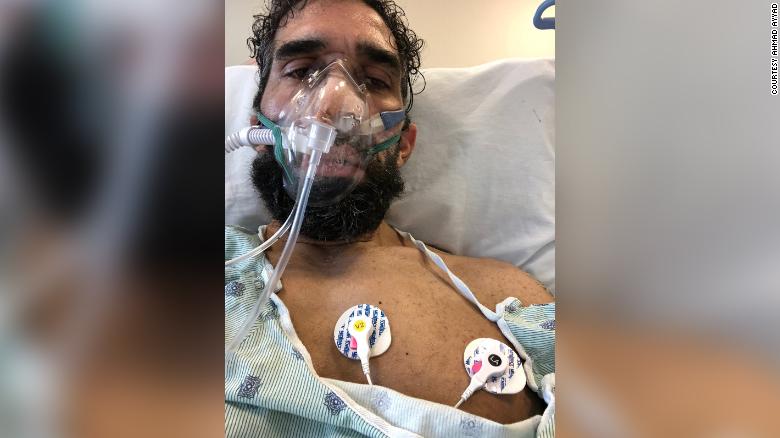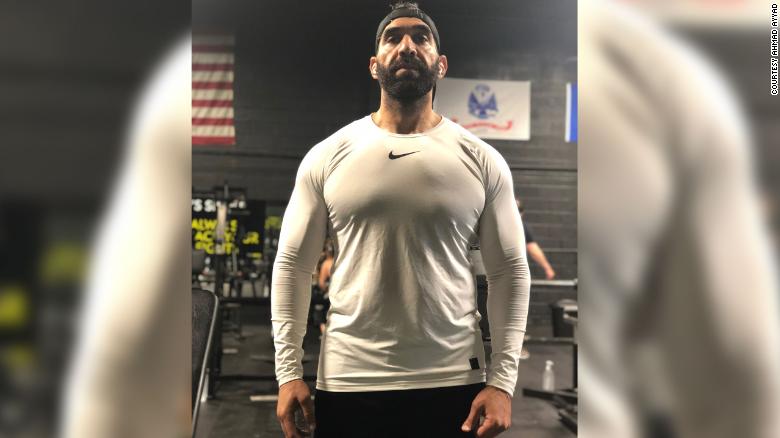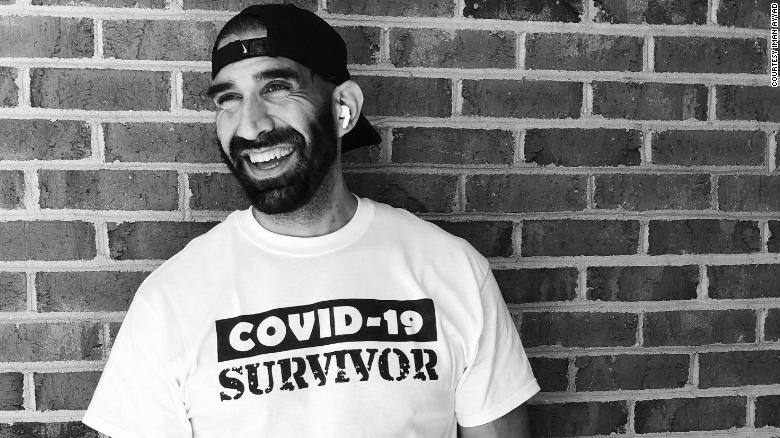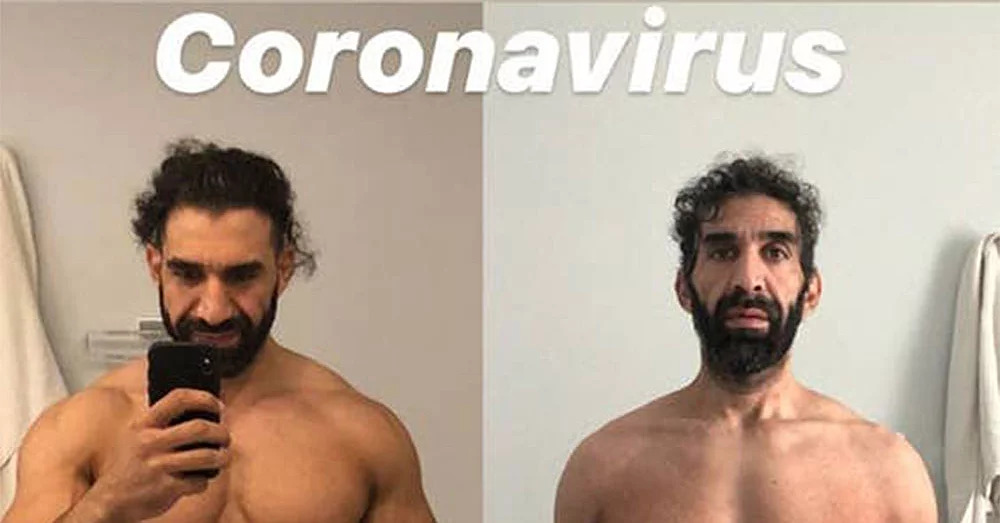Being in the best shape of his life, athlete Ahmad Ayyad didn’t think he had any reason to worry about the novel coronavirus.
In March, the 215-lb. , the athlete was surprised to find himself struggling to do even the simplest things, like go for a walk or breathe freely. As everyday tasks became more difficult and exhausting, he knew something was wrong.
On March 11, Ayyad reported experiencing flu-like symptoms including mild fever, sneezing, coughing, difficulty breathing and a loss of energy. Days later, his friend, a physician assistant, convinced him to go to the hospital.
Ayyad checked into the Sibley Memorial Hospital on March 15, testing positive for COVID-19 and Influenza A.
Before contracting the virus, Ayyad, 40, ran a restaurant and club in Washington, DC, worked in his family’s retail business, and competed in obstacle course races, according to Johns Hopkins Medicine.

He was put into an induced coma and became the hospital’s third coronavirus patient at the time.
Ahmad Ayyad remained in a coma for 25 days and was heavily sedated and delirious, the hospital reported.
“He had no reason why he would be at more risk than anyone else,” Dr. Sandra Zaeh, who treated Ayyad, said. “But there could be factors that we don’t yet fully understand.”
When the tube was finally removed to prepare him for a tracheostomy, Ayyad’s breathing was stable enough that he thankfully didn’t need surgery.

After waking up, however, Ayyad recalled being in shock at what his once chiseled body looked like.
“I woke up and looked at my arms, my legs, and my muscles were gone,” he told CNN. “I was kind of freaking out, like where are my legs? Where did my legs go?”
Ahmad Ayyad lost over 60 lbs. from the virus, and told the hospital he “couldn’t believe how hard it was just get to the edge of the bed and stand.”
Nevertheless, he was eager to start his road to recovery.
For three weeks, the athlete worked on regaining his strength, beginning with relearning how to swallow, talk and walk.
He started with leg extensions, then side lunges, and eventually did squats and walking laps around the hospital, he told CNN.

Ayyad was discharged from the hospital on April 22, still with a blood clot in his left arm and damage to his heart and lungs, the hospital reported. However, his doctor said he “seems to be making a great recovery.”
“Every day, I’m getting better and better,” Ayyad said on May 1. “I’m slowly getting my weight back. I’m eating a lot; I’m taking walks outside.”
As he continues to regain his strength, Ayyad is urging others to “wear your mask” and “take care of yourself and the people around you,” he added.
“Take it seriously,” he added. “It’s not a joke. It can kill you, even if you think you’re healthy and immune to it. You’re not.”










